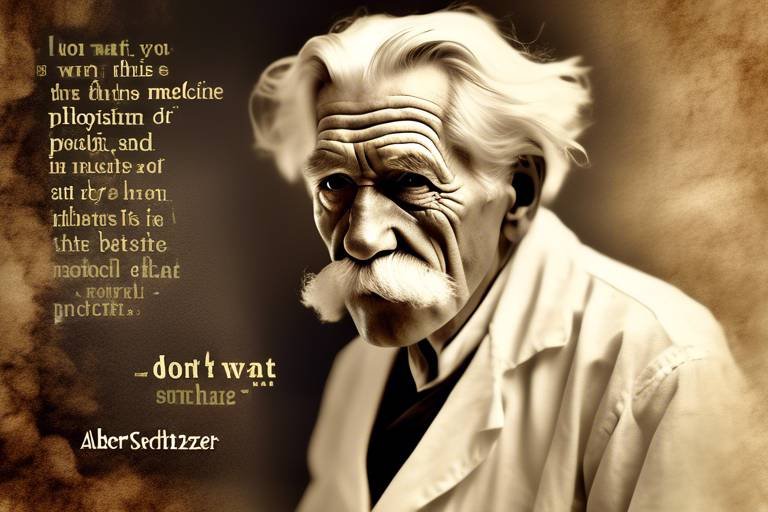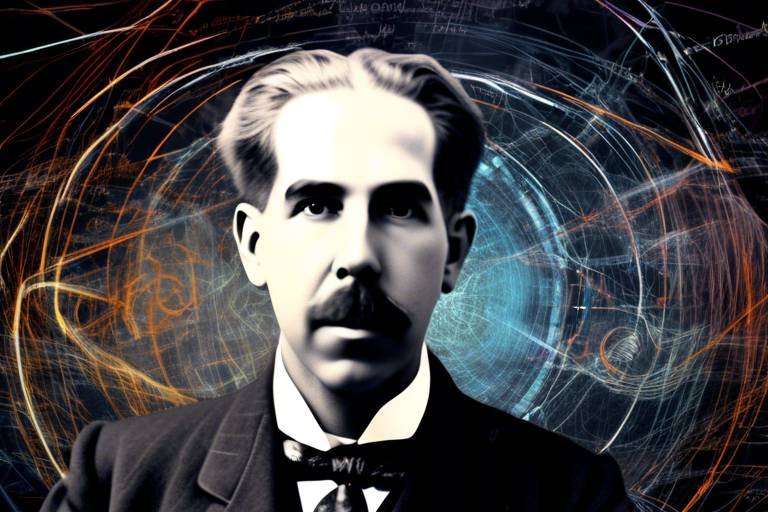The Life of Henrietta Lacks and the Ethics of Medical Research
Henrietta Lacks was not just an ordinary woman; she was a mother, a wife, and an unwitting pioneer in the world of medical research. Born on August 1, 1920, in Roanoke, Virginia, her life was marked by both hardship and resilience. Growing up in a poor African American family, she faced the struggles of systemic racism and economic hardship. However, her life took a dramatic turn in 1951 when she sought treatment for cervical cancer at Johns Hopkins Hospital. During her treatment, doctors collected cells from her tumor without her knowledge or consent. Little did they know, these cells would become one of the most significant tools in medical research, known as HeLa cells.
The story of Henrietta Lacks is not just about her cells; it’s a narrative that intertwines with the ethical fabric of medical research. For decades, her cells were used in groundbreaking studies, leading to advances in cancer treatment, vaccine development, and even gene mapping. Yet, while her cells contributed immensely to science, Henrietta herself remained in the shadows, unaware of the legacy she would leave behind. This raises profound questions about the ethics of consent and the treatment of marginalized individuals in medical research.
In examining Henrietta's life, we also confront the uncomfortable reality of how race and class intersect in the field of medicine. Henrietta was a Black woman in a time when medical ethics were often disregarded, particularly for people of color. Her story is a stark reminder of the need for ethical standards and respect for patient autonomy in research. The lack of consent in her case not only highlights the historical injustices faced by African Americans but also serves as a catalyst for discussions on modern bioethics.
In essence, Henrietta Lacks' life and legacy compel us to reflect on the ethical dimensions of medical research. As we delve deeper into her story, we uncover not only the scientific advancements made possible by HeLa cells but also the critical conversations about consent, race, and the rights of individuals in the realm of medicine. Her journey is a powerful testament to the intersection of science and ethics, challenging us to ensure that the lessons learned from her experience lead to a more equitable future in medical research.
- Who was Henrietta Lacks? Henrietta Lacks was an African American woman whose cells were taken without her consent in 1951, leading to significant advancements in medical research.
- What are HeLa cells? HeLa cells are the first immortal human cell line, derived from Henrietta Lacks' cancer cells, and have been crucial in numerous scientific breakthroughs.
- Why is consent important in medical research? Consent is vital to respect patient autonomy and ensure ethical standards are upheld, preventing exploitation, especially of marginalized communities.
- What impact did Henrietta Lacks have on medical ethics? Her story has sparked discussions about the ethical treatment of patients and the need for informed consent in medical research.

Henrietta Lacks: A Brief Biography
Henrietta Lacks was born on August 1, 1920, in Roanoke, Virginia, into a family of tobacco farmers. Growing up in the segregated South, she faced the harsh realities of racial discrimination, which shaped much of her early life. Henrietta was the great-granddaughter of enslaved people, and her upbringing was steeped in the struggles that many African Americans endured during that era. Despite these challenges, she was a vibrant woman, known for her strength and resilience.
In 1941, at the young age of 21, Henrietta married David Lacks, and together they had five children. The family lived in Baltimore, Maryland, where Henrietta worked as a tobacco farmer before taking a job at a local hospital. It was during a visit to Johns Hopkins Hospital in 1951, seeking treatment for what she believed to be a painful “knot” in her womb, that her life took a dramatic turn. After being diagnosed with cervical cancer, Henrietta underwent radium treatment, but unbeknownst to her, doctors also collected samples of her cancerous cells without her consent.
These cells, later named HeLa cells, would become one of the most important tools in medical research. However, at the time of her treatment, Henrietta was not informed that her cells were being used for research purposes, nor was she aware of the monumental impact they would have on science. Sadly, Henrietta passed away on October 4, 1951, at the age of 31, leaving behind her husband and children.
Henrietta's story remained largely unknown for decades. It wasn't until the publication of Rebecca Skloot's book, The Immortal Life of Henrietta Lacks, in 2010 that her contributions to science were recognized. This book not only highlighted her life and the ethical implications of using her cells without consent but also sparked a global conversation about race, ethics, and the rights of patients in medical research.
Through the years, the legacy of Henrietta Lacks has grown, not just as a pioneer in medical research, but as a symbol of the ethical dilemmas that continue to challenge the medical community. Her story has prompted discussions around informed consent and the need for equitable treatment in health care, making her an enduring figure in both science and social justice.

The HeLa Cells Revolution
The story of HeLa cells is nothing short of revolutionary in the realm of medical research. Derived from the cervical cancer cells of Henrietta Lacks in 1951, these cells have become a cornerstone in the scientific community, fundamentally changing how we approach medicine and biology. Unlike any other cells previously studied, HeLa cells are immortal, meaning they can replicate indefinitely in a laboratory setting. This unique trait has allowed scientists to conduct experiments that would have otherwise been impossible, paving the way for countless medical breakthroughs.
One of the most remarkable aspects of HeLa cells is their ability to grow rapidly and produce large quantities of cells for research. This has enabled researchers to conduct extensive studies without the limitations typically associated with human cells. For instance, the cells have been instrumental in the development of the polio vaccine, allowing scientists to test vaccine efficacy in a controlled environment. Imagine having a limitless supply of cells to work with; it’s like having a never-ending canvas for a painter. This has made HeLa cells a priceless resource in laboratories worldwide.
HeLa cells have contributed to numerous scientific advancements, including:
- Cancer Research: They have provided crucial insights into how cancer cells behave and respond to treatments.
- Vaccine Development: HeLa cells were pivotal in the creation of vaccines, notably the polio vaccine.
- Gene Mapping: They played a significant role in the Human Genome Project, helping scientists understand genetic disorders.
Moreover, HeLa cells have been used in research that ranges from studying the effects of radiation and toxic substances to understanding the fundamentals of cell biology. The ability to conduct experiments on these cells without the ethical dilemmas of using human subjects has allowed for a more profound understanding of various diseases and treatments. It’s as if HeLa cells have opened a Pandora's box of medical possibilities, revealing secrets that were once hidden.
However, it’s essential to recognize that the HeLa cells revolution is not just about scientific progress; it also raises important questions about ethics and consent in medical research. The fact that these cells were taken without Henrietta Lacks’ knowledge or consent casts a long shadow over their legacy. While they have enabled remarkable advancements in medicine, they also serve as a reminder of the need for ethical standards in research practices. This paradox highlights the ongoing struggle between scientific advancement and the rights of individuals, particularly marginalized communities.
In conclusion, the HeLa cells revolution represents a profound shift in medical research. They have not only contributed to significant scientific breakthroughs but have also sparked vital conversations about ethics in medicine. As we continue to explore the potential of HeLa cells, it’s crucial to remember the woman behind the cells and the ethical implications of their use. Henrietta Lacks' legacy is a testament to the complex interplay between science, ethics, and humanity.

Scientific Breakthroughs Enabled by HeLa Cells
HeLa cells, named after Henrietta Lacks, have been at the forefront of numerous groundbreaking scientific discoveries since they were first cultured in the early 1950s. These remarkable cells are unique because they can divide indefinitely in a laboratory setting, making them an invaluable resource for researchers worldwide. Their ability to replicate continuously allows scientists to conduct experiments over extended periods without the need for constant cell harvesting, which is a game-changer in the field of medical research.
One of the most significant contributions of HeLa cells has been in the realm of cancer research. Researchers have utilized these cells to better understand the complexities of tumor behavior, treatment responses, and the mechanisms of cancer cell proliferation. For instance, studies using HeLa cells have led to the discovery of critical insights into how certain cancer drugs work, paving the way for more effective treatment protocols. This has been particularly important in developing personalized medicine, where treatments are tailored to the individual characteristics of each patient's cancer.
Moreover, HeLa cells played a pivotal role in the development of the polio vaccine. In the 1950s, researchers needed a reliable source of human cells to test the vaccine, and HeLa cells provided just that. The cells were instrumental in demonstrating the vaccine's effectiveness, which ultimately led to the near-eradication of polio in many parts of the world. This is a prime example of how a single source of cells can have a ripple effect, impacting global public health.
In addition to cancer and vaccine research, HeLa cells have also contributed to advancements in gene mapping. In the Human Genome Project, which aimed to map all the genes in the human genome, HeLa cells were used extensively. The availability of these cells allowed scientists to conduct experiments that helped identify genetic markers associated with diseases, leading to better diagnostic tools and treatment options. The implications of this research are profound, as it opens doors to understanding genetic disorders and developing targeted therapies.
To summarize, the contributions of HeLa cells to scientific research are vast and varied. Here’s a quick look at some of the key breakthroughs:
| Area of Research | Breakthroughs |
|---|---|
| Cancer Research | Insights into tumor behavior and drug efficacy |
| Vaccine Development | Critical role in the polio vaccine |
| Gene Mapping | Advancements in the Human Genome Project |
In conclusion, HeLa cells have not only revolutionized our understanding of various medical fields but have also raised essential questions about ethics and consent in research. The legacy of Henrietta Lacks lives on through these cells, reminding us of the human stories behind scientific progress.

Impact on Cancer Research
The impact of HeLa cells on cancer research is nothing short of revolutionary. These remarkable cells, derived from Henrietta Lacks, have provided scientists with a unique tool to understand the complexities of cancer. When HeLa cells were first cultured, they exhibited an extraordinary ability to multiply indefinitely in laboratory settings. This characteristic allowed researchers to conduct experiments that were previously impossible. Imagine trying to solve a complex puzzle without all the pieces; HeLa cells provided the missing pieces that enabled researchers to unlock many mysteries of cancer biology.
One of the most significant contributions of HeLa cells has been in the study of tumor behavior. Researchers have used these cells to observe how cancer cells grow, divide, and respond to various treatments. For instance, studies utilizing HeLa cells have led to breakthroughs in understanding how certain cancers resist therapies, which is critical for developing effective treatments. The ability to test drugs on HeLa cells before moving to clinical trials has streamlined the research process and reduced the time it takes to bring new therapies to patients.
Moreover, HeLa cells have been instrumental in identifying the mechanisms of cancer metastasis—the process by which cancer spreads to other parts of the body. By observing how HeLa cells behave in different environments, scientists have gained insights into how cancer cells invade healthy tissues. This research has opened new avenues for developing therapies aimed at preventing metastasis, which is often the most challenging aspect of treating cancer.
Here are some key areas where HeLa cells have made a significant impact:
- Chemotherapy Research: HeLa cells have been used to test the effectiveness of various chemotherapy drugs, leading to improvements in treatment protocols.
- Radiation Therapy Studies: Researchers have explored how HeLa cells respond to radiation, helping to refine radiation treatment techniques.
- Genetic Research: The genomic analysis of HeLa cells has provided insights into the genetic mutations that drive cancer, paving the way for personalized medicine.
Furthermore, the use of HeLa cells has sparked discussions about ethical considerations in cancer research. While the scientific advancements are undeniable, the story of Henrietta Lacks reminds us of the importance of informed consent and the ethical treatment of patients. As researchers continue to benefit from HeLa cells, it is crucial to maintain a dialogue about the rights of individuals whose tissues contribute to scientific progress.
In summary, the impact of HeLa cells on cancer research has been profound and multifaceted. They have not only enhanced our understanding of cancer biology but have also accelerated the development of new treatments. However, as we celebrate these advancements, we must also remember the ethical implications of using human tissues in research, ensuring that the legacy of Henrietta Lacks continues to inspire responsible and humane practices in the field of medicine.

Contributions to Vaccine Development
The story of Henrietta Lacks is not just one of personal tragedy; it is also a tale of scientific triumph, particularly in the field of vaccine development. The immortal HeLa cells, derived from Henrietta's tumor, have been at the forefront of groundbreaking research, most notably in the creation of the polio vaccine. Imagine a world where polio was still a looming threat; thanks to the contributions of HeLa cells, this disease has been largely eradicated in many parts of the globe. Isn’t it fascinating how one person’s cells can change the course of history?
In the early 1950s, Dr. Jonas Salk began his quest to develop a vaccine against polio, a disease that paralyzed thousands of children each year. The challenge was daunting, as researchers needed a reliable way to grow the poliovirus in the lab. This is where HeLa cells stepped in. These cells could multiply indefinitely, providing a steady supply of the virus needed for vaccine testing. Without the availability of HeLa cells, the timeline for developing the polio vaccine could have been significantly delayed, potentially costing countless lives.
Furthermore, HeLa cells have contributed to the understanding of how vaccines work at a cellular level. Researchers have utilized these cells to study the immune response to various pathogens, leading to the development of vaccines for other diseases as well. The ability of HeLa cells to replicate and provide consistent results has made them an invaluable tool in laboratories worldwide. They are like the Swiss Army knife of biomedical research—versatile and essential!
To illustrate the impact of HeLa cells on vaccine development, consider the following table:
| Vaccine | Year Developed | Role of HeLa Cells |
|---|---|---|
| Polio Vaccine | 1955 | Provided a medium for virus growth |
| Measles Vaccine | 1963 | Studied immune response |
| HPV Vaccine | 2006 | Assisted in understanding virus behavior |
In addition to polio, HeLa cells have played a role in developing vaccines for diseases such as measles and human papillomavirus (HPV). The insights gained from studying these cells have not only advanced our understanding of viral infections but have also paved the way for new vaccine technologies. It’s a testament to how interconnected our health is with the legacy of one woman.
While the contributions of HeLa cells to vaccine development are undeniably significant, they also raise important ethical questions. The use of Henrietta Lacks' cells without her consent is a stark reminder of the need for ethical standards in medical research. As we celebrate the advancements made possible through her cells, we must also acknowledge the importance of informed consent and the rights of individuals in the medical community.

Ethical Considerations in Medical Research
When we delve into the story of Henrietta Lacks, we uncover a tangled web of ethical dilemmas that continue to resonate in the field of medical research today. Her cells, known as HeLa cells, have been instrumental in countless scientific advancements, yet the circumstances surrounding their collection raise profound questions about autonomy, informed consent, and the treatment of marginalized individuals within the healthcare system.
Imagine being a patient, seeking treatment for a life-threatening illness, only to find out that your cells are being used for research without your knowledge or permission. This was the reality for Henrietta Lacks. In the early 1950s, she sought help for cervical cancer at Johns Hopkins Hospital, where doctors took a sample of her tumor cells without informing her. At the time, this practice was not uncommon, especially among African American patients, who often faced systemic discrimination and a lack of rights in medical settings.
The ethical implications of this act are staggering. It raises crucial questions such as:
- Should patients always be informed about how their biological materials will be used?
- How do we balance the benefits of scientific research against the rights of individuals?
- What measures should be in place to ensure that all patients, regardless of race or socioeconomic status, are treated with dignity and respect?
The absence of informed consent in Henrietta's case highlights a significant gap in medical ethics that has prompted a reevaluation of practices in research involving human subjects. The Belmont Report, published in 1979, established key ethical principles for research, including respect for persons, beneficence, and justice. These principles were, in part, a response to the injustices faced by individuals like Henrietta Lacks and others who were exploited in the name of science.
Furthermore, the legacy of Henrietta Lacks has sparked a broader conversation about race and ethics in medical research. Historically, minority groups have been disproportionately subjected to unethical research practices, often without their consent or understanding. This has led to a deep mistrust of the medical community among these populations, which is a barrier to effective healthcare and research today.
In response to these ethical challenges, many institutions now emphasize the importance of obtaining informed consent and ensuring that participants are fully aware of how their contributions will be used. The introduction of Institutional Review Boards (IRBs) has helped to protect the rights and welfare of research participants, ensuring that ethical standards are upheld. However, the question remains: Are these measures enough to prevent future injustices?
As we reflect on the life and legacy of Henrietta Lacks, it becomes clear that her story is not just about the scientific breakthroughs enabled by HeLa cells; it is also a call to action for ethical vigilance in medical research. The lessons learned from her experience must guide us in creating a more equitable and just healthcare system, one that respects the autonomy of all individuals and acknowledges the historical injustices that have shaped the landscape of medical research.
- What are HeLa cells? HeLa cells are a line of human cells that were taken from Henrietta Lacks without her knowledge in 1951. They are the first immortal human cell line and have been used in numerous scientific breakthroughs.
- Why is informed consent important? Informed consent ensures that individuals are fully aware of how their biological materials will be used in research, allowing them to make educated decisions about their participation.
- How has Henrietta Lacks' story influenced medical ethics? Her story has highlighted the need for ethical standards in research, particularly concerning marginalized groups, and has led to reforms aimed at protecting research participants' rights.

The Legacy of Henrietta Lacks
Henrietta Lacks' legacy is a tapestry woven with threads of science, ethics, and social justice. Her story is not just about the cells that bear her name; it’s a powerful reminder of the human lives behind scientific advancements. Henrietta, a poor African American woman, unknowingly became a cornerstone of modern medicine when her cells, known as HeLa cells, were taken without her consent in the early 1950s. This act of medical appropriation raises profound questions about autonomy, consent, and the ethical treatment of patients, especially those from marginalized communities.
As we reflect on her legacy, it’s essential to recognize the broader implications of her story. The use of HeLa cells has led to groundbreaking discoveries in various fields, but it also opened a Pandora's box of ethical dilemmas. For instance, the lack of consent for the use of her cells has prompted a reevaluation of ethical standards in medical research. Today, researchers are more aware of the importance of informed consent, ensuring that individuals understand how their biological materials may be used. This shift can be seen as a direct result of Henrietta's story, highlighting the need for respect and dignity in the medical field.
Moreover, Henrietta's legacy has sparked important conversations about race in medicine. Historically, African Americans have faced exploitation in medical research, and her story sheds light on these injustices. It serves as a catalyst for discussions about equity in healthcare, urging us to consider who benefits from medical research and who is often left behind. As we navigate this complex landscape, it's crucial to advocate for policies that ensure all individuals, regardless of their background, are treated with fairness and respect in medical contexts.
Additionally, Henrietta Lacks has become a symbol of resilience and strength. Her story has inspired numerous books, documentaries, and discussions that aim to educate the public about the ethical implications of medical research. The most notable work, The Immortal Life of Henrietta Lacks by Rebecca Skloot, has played a pivotal role in bringing her story to light. This book not only chronicles her life but also serves as a call to action for ethical practices in research. It encourages readers to think critically about the intersection of race, ethics, and medical science.
In summary, the legacy of Henrietta Lacks is multifaceted. It encompasses scientific achievement, ethical considerations, and social justice. Her story is a poignant reminder of the need for ethical standards in research, particularly regarding informed consent and the treatment of marginalized groups. As we continue to benefit from the advancements made possible by HeLa cells, we must also honor Henrietta's memory by advocating for ethical practices that protect the rights and dignity of all individuals involved in medical research.
- Who was Henrietta Lacks? Henrietta Lacks was an African American woman whose cancer cells were taken without her knowledge in the 1950s, leading to significant medical breakthroughs.
- What are HeLa cells? HeLa cells are the first immortal human cell line, derived from Henrietta Lacks' cervical cancer cells, and have been used in countless scientific research studies.
- Why is Henrietta Lacks' story important? Her story highlights critical ethical issues in medical research, particularly regarding consent and the exploitation of marginalized individuals.
- How has her legacy impacted medical ethics? Henrietta's legacy has led to a greater emphasis on informed consent and ethical standards in research involving human subjects.

Influence on Modern Bioethics
Henrietta Lacks' story is not just a tale of scientific discovery; it is a profound narrative that has reshaped the landscape of modern bioethics. Her experience raises critical questions about informed consent, autonomy, and the ethical treatment of patients, particularly those from marginalized communities. In a world where medical advancements often come at the cost of individual rights, Lacks' legacy serves as a pivotal reminder of the need for ethical standards in research.
Before Henrietta's cells were used in research, the concept of informed consent was not as rigorously applied as it is today. Her case highlighted the importance of obtaining explicit permission from individuals before their biological materials are utilized for research purposes. This has led to significant changes in how medical research is conducted, ensuring that patients are fully aware of how their tissues may be used. As a result, many institutions now require strict adherence to ethical guidelines that prioritize patient autonomy and respect for personal rights.
Moreover, Lacks' story shines a light on the intersection of race and medical ethics. Historically, African Americans have been subjected to unethical medical practices, often without their knowledge or consent. The exploitation of Henrietta's cells underscores the need for a more equitable approach in medical research. It has prompted discussions about the importance of diversity in clinical trials and the necessity of building trust within communities that have been historically marginalized. Thus, her legacy has sparked a broader dialogue about the ethical responsibilities of researchers to engage with and respect the populations they study.
To further illustrate the impact of Henrietta Lacks on modern bioethics, consider the following table that outlines key ethical principles that have emerged in response to her story:
| Ethical Principle | Description |
|---|---|
| Informed Consent | Ensuring that individuals are fully aware of and agree to the use of their biological materials for research. |
| Respect for Autonomy | Recognizing and honoring the rights of individuals to make informed decisions about their own bodies. |
| Justice | Addressing inequalities in healthcare and ensuring fair treatment of all participants in research. |
Additionally, the story of Henrietta Lacks has catalyzed a movement towards greater public awareness and education on bioethical issues. Literature, documentaries, and academic discussions have emerged, fostering a deeper understanding of the ethical implications of medical research. This increased awareness has empowered individuals to advocate for their rights and demand transparency from medical institutions.
Ultimately, the influence of Henrietta Lacks on modern bioethics cannot be overstated. Her legacy compels us to reflect on our ethical obligations in research and the importance of protecting the rights of all individuals, particularly those who have historically been marginalized. As we continue to navigate the complexities of medical research, let us honor her memory by striving for an ethical framework that prioritizes respect, autonomy, and justice for all.
- What are HeLa cells? HeLa cells are the first immortal human cell line, derived from Henrietta Lacks' cervical cancer cells in 1951, which have been used extensively in scientific research.
- Why is informed consent important? Informed consent is crucial because it respects individuals' rights to make decisions about their own bodies and ensures they understand how their biological materials will be used.
- How has Henrietta Lacks' story influenced medical ethics? Her story has highlighted the need for ethical standards in research, particularly regarding consent and the treatment of marginalized communities.
- What impact did HeLa cells have on medical research? HeLa cells have contributed to numerous breakthroughs, including the development of vaccines, cancer treatments, and advancements in genetics.

Public Awareness and Education
In today's world, where information travels faster than ever, the story of Henrietta Lacks has become a beacon for discussions surrounding ethics in medical research. Her life and the subsequent use of her cells, known as HeLa cells, have sparked a significant movement in public awareness and education regarding the ethical implications of scientific advancements. It's fascinating to think about how one woman's cells could ignite such a profound conversation about consent, race, and the rights of patients.
Books, documentaries, and articles have played a pivotal role in bringing Henrietta's story to light. One of the most notable works is Rebecca Skloot's book, The Immortal Life of Henrietta Lacks, which not only chronicles Henrietta's life but also delves deep into the ethical questions raised by her case. This book has educated countless readers about the importance of informed consent and the historical context of medical research, especially concerning African American patients. It serves as a reminder that behind every scientific breakthrough, there are real people whose stories are often overlooked.
Moreover, educational institutions have begun incorporating Henrietta's story into their curricula, emphasizing the need for ethical standards in research. For instance, biology and ethics classes often include discussions about HeLa cells, prompting students to consider the implications of using human tissues in research without consent. This kind of education is crucial because it not only informs students about scientific advancements but also instills a sense of responsibility and ethical consideration in future researchers.
In addition to formal education, social media platforms have become powerful tools for raising awareness. Campaigns and discussions about Henrietta Lacks are prevalent on platforms like Twitter, Instagram, and Facebook, where people share articles, quotes, and personal reflections. This grassroots movement has helped to create a community of advocates who are passionate about ensuring that the rights of patients are respected in all forms of medical research.
Furthermore, public health organizations and advocacy groups have taken steps to honor Henrietta's legacy by promoting ethical practices in research. They often hold workshops and seminars that address the importance of informed consent, especially in marginalized communities that have historically been exploited in medical research. Through these initiatives, they aim to empower individuals to understand their rights and advocate for themselves and their families.
Ultimately, the story of Henrietta Lacks serves as a powerful reminder of the need for continuous dialogue about ethics in medical research. It encourages us to ask tough questions and seek answers that respect the dignity and autonomy of all individuals. As more people become aware of her contributions and the ethical dilemmas surrounding her legacy, we can hope for a future where medical research is conducted with the utmost respect for human rights.
- Who was Henrietta Lacks? Henrietta Lacks was an African American woman whose cells were taken without her consent in the 1950s, leading to significant advancements in medical research.
- What are HeLa cells? HeLa cells are the first immortal human cell line, derived from Henrietta Lacks, and have been used in numerous scientific breakthroughs.
- Why is informed consent important? Informed consent ensures that individuals are fully aware of and agree to the use of their biological materials in research, respecting their autonomy and rights.
- How has Henrietta Lacks' story influenced modern bioethics? Her story has highlighted the need for ethical standards in research, particularly regarding consent and the treatment of marginalized communities in medical studies.
Frequently Asked Questions
- Who was Henrietta Lacks?
Henrietta Lacks was an African American woman whose cancer cells were taken without her knowledge in 1951. These cells, known as HeLa cells, became one of the most important tools in medicine, contributing to numerous scientific breakthroughs.
- What are HeLa cells?
HeLa cells are immortal cell lines derived from Henrietta Lacks' cervical cancer cells. They are unique because they can divide indefinitely in a laboratory setting, making them invaluable for medical research and experimentation.
- Why are HeLa cells significant in medical research?
HeLa cells have played a crucial role in many scientific advancements, including cancer research, vaccine development, and gene mapping. Their ability to replicate quickly has allowed researchers to conduct experiments that would otherwise be impossible.
- What ethical issues arose from the use of Henrietta Lacks' cells?
The collection of Henrietta Lacks' cells without her consent raises significant ethical questions about autonomy and informed consent in medical research. It highlights the need for ethical standards to protect patients' rights and ensure their informed participation in research.
- How did Henrietta Lacks' story impact modern bioethics?
Henrietta Lacks' story has had a profound impact on modern bioethics, prompting discussions about the rights of patients, consent, and the ethical treatment of individuals in medical research. Her legacy has influenced policies aimed at protecting human subjects in research.
- What contributions did HeLa cells make to vaccine development?
HeLa cells were instrumental in the development of the polio vaccine, among others. Their ability to grow rapidly in the lab allowed researchers to test vaccines effectively, ultimately contributing to significant public health advancements.
- How can I learn more about Henrietta Lacks and her legacy?
To learn more about Henrietta Lacks, you can read books like "The Immortal Life of Henrietta Lacks" by Rebecca Skloot, watch documentaries, or explore articles that discuss her contributions and the ethical implications of her story in medical research.



















